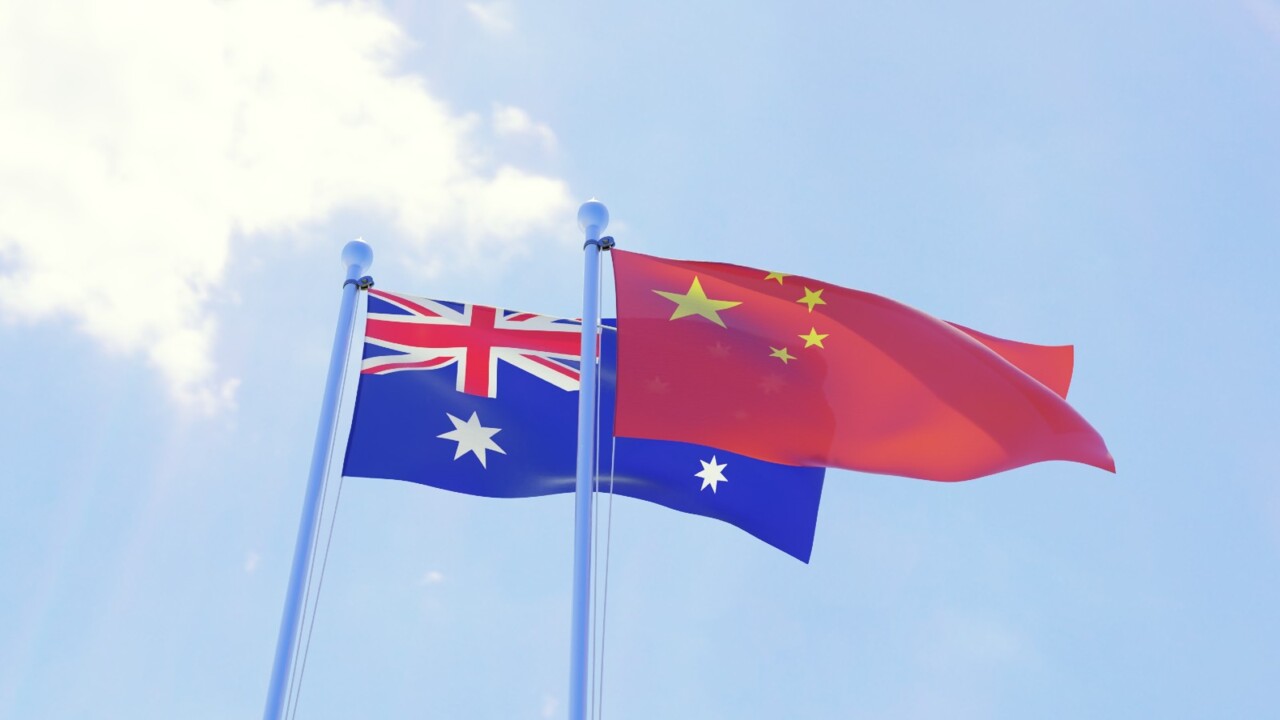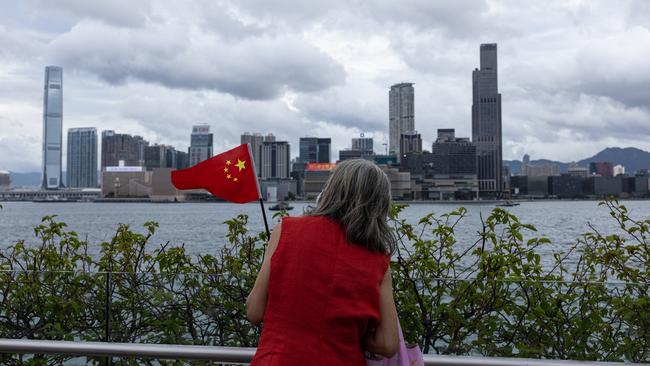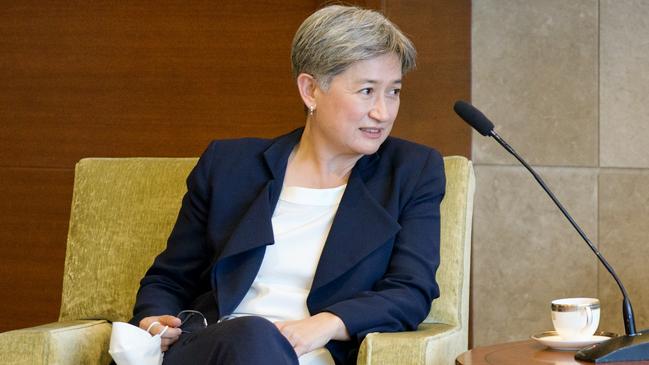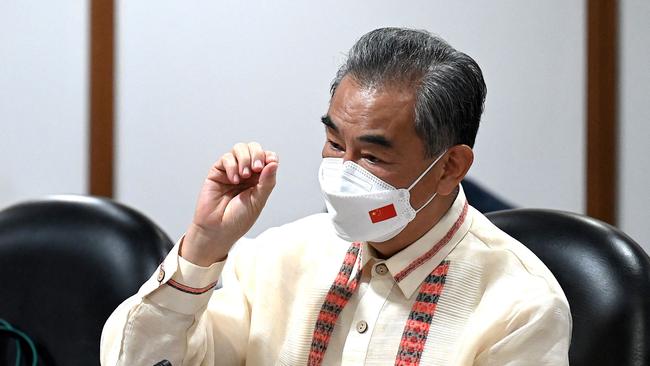
The mergers and acquisitions sector is now watching to see if Chinese investors will continue to quietly exit the Australian stage.
The Australian’s Data Room column this week has revealed some potential tyre kicking around cinema company Hoyts.
Its Chinese owner, the super high-profile Dalian Wanda, has been keen to sell its interest in the company for the past two years. The question is whether it will get the right offer in the current market.
Chinese investment in Australia has now fallen away to a fraction of what it was in the heady days of around 2016, due to a combination of the Chinese government cracking down on big-ticket trophy deals by Chinese conglomerates — including high-profile buildings, hotels and football teams — and a move by the federal government to tighten up on deals by Chinese companies, particularly the state-owned companies which make up the bulk of the Chinese economy.

The federal government’s move to block the bid by Chinese state-owned power company China State from bidding for NSW electricity company Ausgrid in 2016 was a major turning point which signalled that big-ticket deals by Chinese companies for certain key or so-called “critical” assets were no longer welcome.
New Chinese investment in Australia reached a peak of $US16.2bn in 2008 before the global financial crisis kicked in, according to the annual survey by KPMG and Sydney University, Demystifying Chinese Investment in Australia.
It fell to $US3.9bn in 2010, before rising to a height of $US11.5bn in 2016.
After 2016 there was a shift in the composition of Chinese investment in Australia. State-owned companies largely sat on their hands, remaining very cautious about the political environment in the wake of the public embarrassment over Ausgrid, with the major new deals being done by private companies.
The following years saw a rush of deals as Chinese companies bought into the healthcare sector, a factor driven by the increasing attention being given to health in China against the backdrop of an ageing population.
One investor was the Shanghai-listed Jangho Group, which bought several assets in the sector, culminating in an unsolicited takeover bid for medical centre and healthcare group Healius in early 2019, which valued the group at more than $2bn.
But that bid was rejected by the board and followed by suggestions that any improved offer would not pass muster with the Foreign Investment Review Board, given that Healius had access to sensitive healthcare data of its customers, some of which were members of the defence forces.
As time went on, it became clear that the healthcare sector in general had become another area deemed to be sensitive and approaches by Chinese companies were likely to receive much more critical scrutiny from FIRB.
While Chinese investors were still interested in the sector (Jangho said publicly later that year that it would like to buy more of Healius), they became aware that the door was being quietly closed on new deals in this sector.

Total new investment deals by Chinese companies into Australia were down to $US2.36bn in 2019, $US1.9bn in 2020 and a mere $US585m in 2021.
The latest KPMG/ Sydney University report shows that there were only 11 completed deals in 2021 – dominated by four deals in the mining sector which made up 70 per cent of the total value of new investments into Australia.
It is a far cry from the heady days in Australia and around the world a few years ago when Chinese companies such as insurance group Anbang, HNA and Dalian Wanda were splashing their cheque books around the world.
In 2014 Anbang spent $US2bn buying the Waldorf Hotel in New York. The HNA group bought a 19 per cent stake in Virgin Australia in 2016 while doing global deals to buy into Deutsche Bank, the Hilton Group and airline catering company Swissport, and other properties around the world.
Privately owned Nanshan also took a 19 per cent stake in Virgin later in 2016.
But the two Chinese shareholders lost all their money in Virgin in 2020 when the airline collapsed.
Another sign that the welcome mat for new Chinese investment in Australia was well and truly being torn up by the Morrison government was the decision in early 2021 to block a $300m offer by China State Construction Engineering Corporation for financially troubled building contractor ProBuild, apparently on national security grounds.
The rejection of the offer from a cashed-up bidder with extensive experience in the construction sector not only saw the collapse of the company but has headed off any more potential bids for other troubled Australian building companies — a sector facing increasing financial pressures with rising inflation and costs, and now rising interest rates.
Not only has new Chinese investment in Australia fallen to a fraction of the levels of around 2016, the possible sale of the Hoyts stake highlights the fact that several existing Chinese companies in Australia are looking to make an exit if they can.
Chinese investors into Australia have traditionally been keen to expand their footprint.
But the near certainty of any new deals receiving a tough time from FIRB, discourages those companies already here from expanding and has prompted some to think about cashing out.

M&A players are watching to see if Jangho might sell off its Vision Eye Institute business in Australia.
Another company in play is pallets and packaging company, Loscam Australia.
The business was sold by Affinity Equity Partners to the China Merchants Group in 2010 for almost $700m.
China Merchants sold more than 50 per cent of the company in 2018 to Chinese government owned investment company Citic Capital and Chinese private equity investor, FountainVest.
The company’s Chinese shareholders are now looking for bids for the group’s Australian pallet business.
There has also been speculation that China State Power might look to sell off its interest in Melbourne-based renewable energy company Pacific Hydro, which it bought from IFM Investors in 2016 for some $3bn.
Another deal on foot which is being closely watched for its political implications is the offer by China’s Yankuang Energy Group to buy the remaining 37.7 per cent it doesn’t own of ASX-listed coal company Yancoal.
Swiss-based global mining and commodity trading company Glencore is known to have rejected the offer for its minority stake.
But if the Chinese were to sweeten the deal to buy out Glencore, which would allow them to take over and delist the company, it would still have to be approved by FIRB.
Some see any approval of this deal, if it were to go ahead, as being another key test of Australia-China relations.
Chinese interest is continuing in smaller Australian mining companies, including those in the iron ore and lithium sectors but expectations are that, given the anti-Chinese view from Canberra in recent years, other investors will continue to quietly exit the scene.
That said, a cordial meeting between Penny Wong and Wang Yi could at least shift the dynamics — although potentially more for trade than the much riskier business of investment.






As the Australian business community watches to see if Foreign Minister Penny Wong has an ice-breaking meeting with Chinese Foreign Minister Wang Yi at the G20 Foreign Ministers conference in Bali this week, it is clear that the once heady days of Chinese investment in Australia are now over.